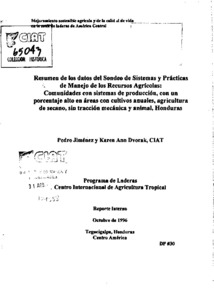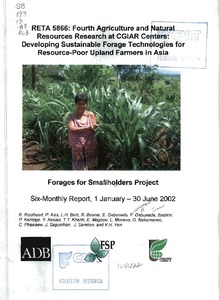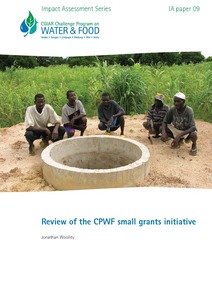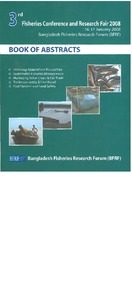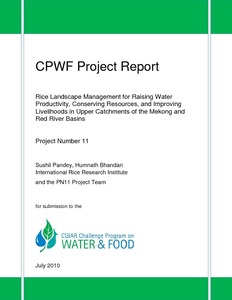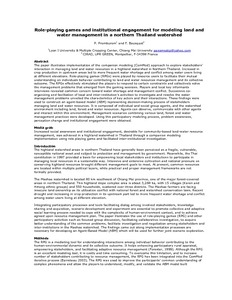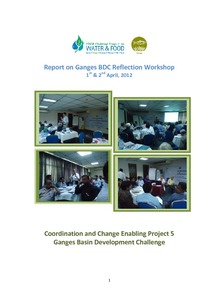Sistemas de explotación
AGROVOC URI:
RETA 5866: fourth agriculture and natural resources research at CGIAR centers: developing sustainable forage technologies for resource-poor upland farmers in Asia: Forages for Smallholders Project: Six-monthly report, 1 January-30 June 2002
Reunión del Comité Asesor de la Red Internacional de Evaluación de Pastos Tropicales (7, Palmira, Valle del Cauca, Colombia). 1990,. Investigación con pasturas en fincas
Review of the CPWF small grants initiative
This working paper reviews the experiences of the Challenge Program on Water and Food (CPWF) with 14 “small
grants for impact” that were contracted in early 2006 and operated for periods of 12 to 18 months. For a total
investment of under US$1 million – less than the equivalent of a typical 3-5 year CPWF research for development
project in Phase 1, the small grant projects made significant contributions to identifying water and food technology
for specific end users (thus showing the potential of CPWF research in general); to better understanding of
Rice landscape management for raising water productivity, conserving resources, and improving livelihoods, in upper catchments of the Mekong and Red River basins
The project validated and disseminated a large number of improved rice-based cropping systems technologies suited to upland agro-ecologies. These improved technologies have good potentials to raise the productivity of water, land, and labor. The innovative strategies employed by the project including the paradigm of landscape management, multi-institutional partnership, multidisciplinary teamwork, farmer participatory approach to technology validation, and community-based seed production led to successful generation and dissemination of technologies.
Role-playing games and institutional engagement for modeling land and water management in a northern Thailand watershed
Report of the regional workshop on sustainable intensification of mixed crop-livestock farming systems in Northern Ghana, Tamale, Ghana, 27-28 August 2012
Report on Ganges BDC Reflection Workshop
Phase II of the CGIAR Challenge Program for Water and Food (CPWF) is a multi-institutional and inter-disciplinary research for development initiative focused on increasing the resilience of social and ecological systems through better water management for food production.Phase II in the Ganges Basin began in 2011 and is scheduled to end in 2014.

